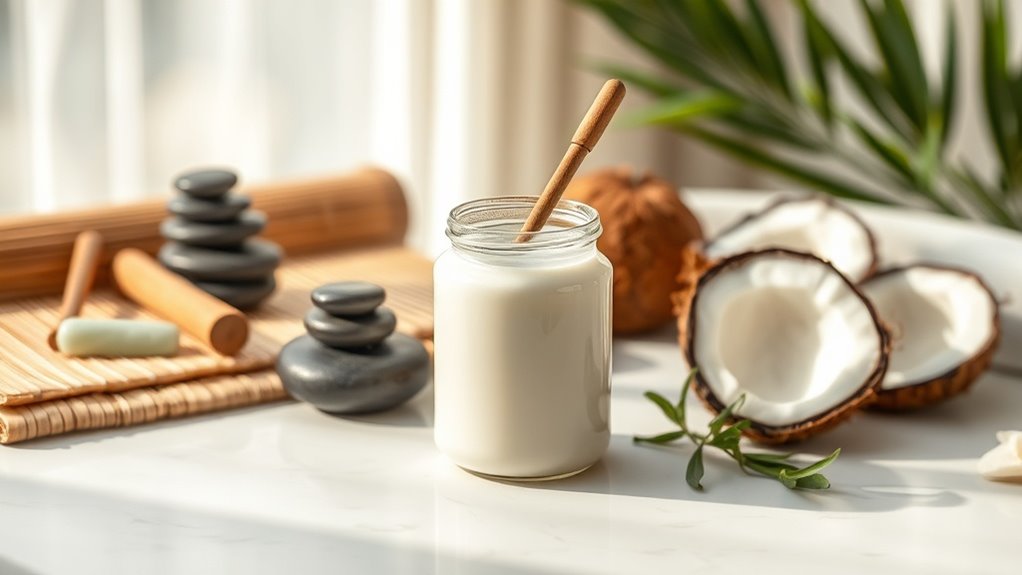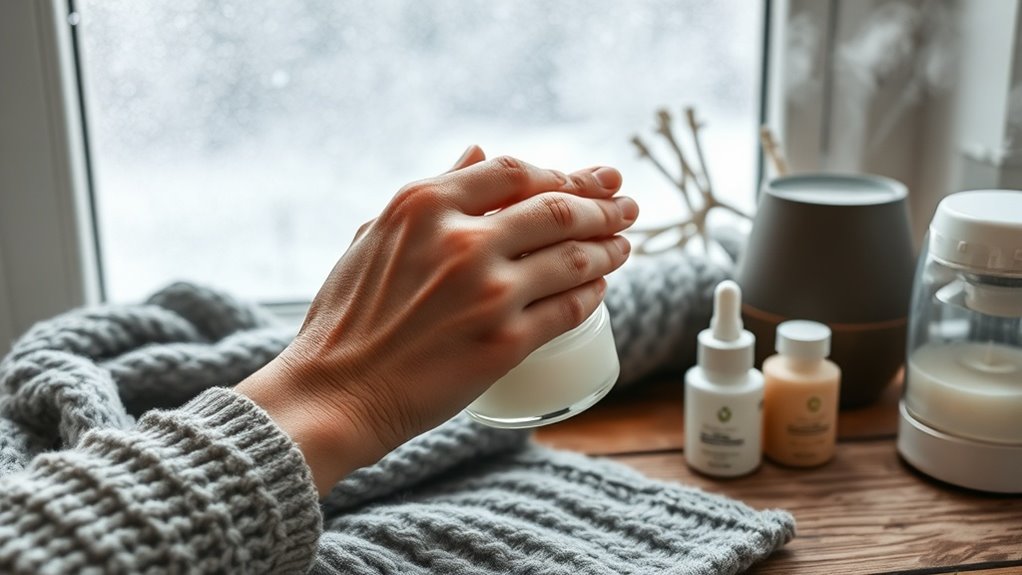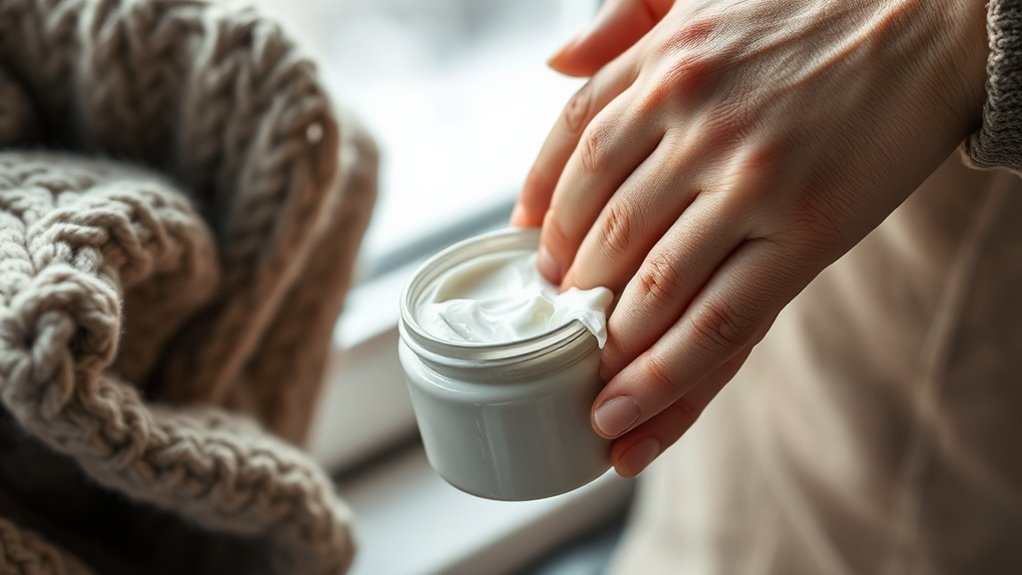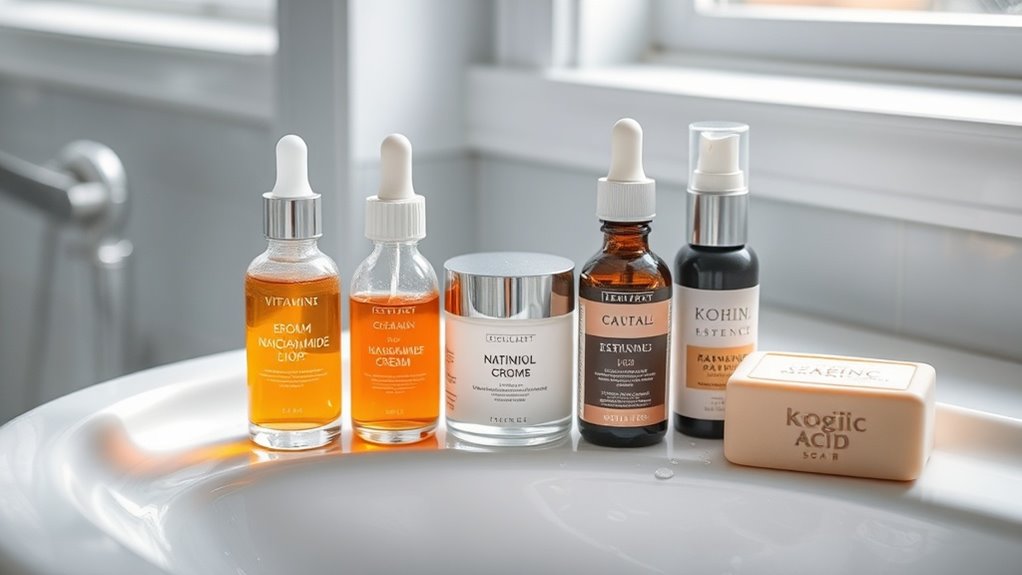Sensitive Skin Tips That Calm Redness Fast
Whether you’re dealing with hormonal flare-ups, environmental triggers, or product-induced reactions, sensitive skin demands immediate attention and targeted solutions. You’ll recognize the familiar signs: burning sensation, visible redness, and that uncomfortable tight feeling across your face. While the urge to try aggressive treatments might be strong, understanding the science behind skin sensitivity will help you choose the most effective calming techniques. The path to lasting relief starts with identifying your specific triggers.
Understanding the Root Causes of Skin Redness
While skin redness can stem from multiple causes, understanding the underlying triggers is essential for effective treatment. Common culprits include rosacea, contact dermatitis, and allergic reactions.
Environmental factors like UV exposure, extreme temperatures, and wind can also trigger inflammation. Among the most overlooked sensitive skin tips is identifying ingredient sensitivities to skincare products, particularly those containing fragrances, alcohol, or harsh exfoliants. Additionally, environmental factors like excessive sun exposure can worsen skin redness due to their impact on skin health.
Medical conditions such as lupus, seborrheic dermatitis, and eczema may manifest as facial redness. Stress, certain medications, and hormonal changes can further exacerbate skin inflammation.
Gentle Cleansing Techniques for Sensitive Skin
How you cleanse your sensitive skin can make the difference between calm and irritated skin. Use lukewarm water and avoid hot temperatures that can trigger inflammation.
Select fragrance-free, soap-free cleansers with minimal ingredients, focusing on gentle surfactants like cocamidopropyl betaine.
Apply your cleanser using light, circular motions with your fingertips rather than washcloths or brushes. Limit washing to twice daily, as over-cleansing disrupts your skin barrier.
Don’t rub or scrub; instead, pat your face dry with a clean, soft cotton towel. Follow immediately with a moisturizer while your skin is still slightly damp.
Natural Ingredients That Combat Inflammation
Natural anti-inflammatory ingredients offer scientifically proven relief for sensitive skin conditions.
Research shows that aloe vera contains acemannan compounds that reduce inflammation and accelerate healing. Green tea’s polyphenols, particularly EGCG, decrease redness and irritation through antioxidant activity.
Chamomile extract delivers potent bisabolol and chamazulene, which calm reactive skin and neutralize free radicals.
Calendula’s triterpenoids provide documented anti-inflammatory benefits, while colloidal oatmeal’s avenanthramides effectively soothe eczema and dermatitis.
Honey offers natural antibacterial properties and helps maintain skin barrier function through enzymatic activity. Additionally, these natural remedies support biological recovery processes in the skin, promoting overall healing and comfort.
Building a Minimal but Effective Skincare Routine
For those with sensitive skin, establishing a minimal yet strategic skincare routine can prevent adverse reactions and strengthen the skin barrier.
Start with a gentle, pH-balanced cleanser and lukewarm water morning and night.
Follow with a fragrance-free hydrating toner containing ceramides or hyaluronic acid.
Apply a lightweight, non-comedogenic moisturizer while skin remains slightly damp.
During the day, finish with a mineral-based SPF 30+ sunscreen containing zinc oxide or titanium dioxide.
Introduce new products one at a time, waiting two weeks between additions to monitor potential reactions.
Keep a skin diary to track triggers. Additionally, incorporating calming ingredients like anti-inflammatory ingredients can further soothe the skin and alleviate redness.
Lifestyle Changes to Reduce Skin Sensitivity
Beyond skincare products, several lifestyle modifications can greatly reduce skin sensitivity and prevent flare-ups.
Clinical studies demonstrate that environmental and behavioral factors substantially impact skin barrier function and inflammatory responses.
- Maintain ideal indoor humidity (40-60%) and temperature (68-72°F) to prevent transepidermal water loss and barrier disruption.
- Avoid known triggers including hot showers, alcohol-based products, and direct sun exposure between 10 AM and 4 PM.
- Switch to hypoallergenic laundry detergents and avoid fabric softeners, while using breathable, natural fiber clothing that minimizes friction.
These evidence-based adjustments can markedly decrease skin reactivity and inflammation.
Quick Emergency Solutions for Flare-Ups
While preventive measures help minimize sensitivity, acute flare-ups can still occur and require immediate intervention.
You’ll need quick solutions to calm inflammation and restore skin comfort.
Apply a cold compress for 10-15 minutes to constrict blood vessels and reduce redness. Use over-the-counter 1% hydrocortisone cream for temporary relief, but don’t exceed 7 days of use.
Consider oral antihistamines if itching is severe.
For instant cooling, keep aloe vera gel in your refrigerator and apply as needed; aloe vera’s anti-inflammatory properties can also further enhance relief.
Thermal spring water sprays containing selenium can help neutralize irritation.
These solutions provide rapid relief while your skin barrier recovers.
Prevention Strategies for Long-Term Relief
Instead of relying solely on reactive treatments, developing a consistent preventive skincare routine can greatly reduce the frequency and severity of sensitive skin reactions.
Clinical studies show that a proactive approach targeting barrier function and inflammation yields superior long-term outcomes.
-
Maintain skin pH balance by using gentle, non-foaming cleansers with a pH between 4.5-5.5.
-
Strengthen your skin barrier with ceramide-rich moisturizers and avoiding known irritants identified through patch testing.
-
Protect against environmental damage by applying broad-spectrum SPF 30+ daily and limiting exposure to extreme temperatures.
These evidence-based strategies help stabilize reactive skin and prevent future flare-ups. Additionally, incorporating essential natural ingredients such as aloe vera and chamomile can enhance your skin’s resilience against irritation.




